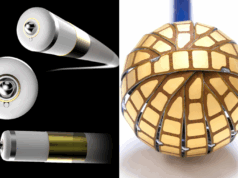
At three-year follow-up, 80% of patients with persistent atrial fibrillation showed freedom from atrial fibrillation and were free from anti-arrhythmic drugs after thoracoscopic ablation with the Bipolar RF Ablation System (AtriCure). Results from a German study were presented by Timo Weimar, Stuttgart, Germany, at the International Society for Minimally Invasive Cardiothoracic Surgery (ISMICS) meeting (12–15 June, Prague, Czech Republic).
In the study, 121 patients were enrolled at Sana Heart Center, Stuttgart, Germany, from 2009 to 2013, 25% of whom had failed at least two previous catheter ablation procedures. The objective of the study was to evaluate the efficacy of an endoscopic approach in performing a left atrial lesion set on the beating heart. Radiofrequency ablation was performed via a bilateral endoscopic ablation approach using small ports and a microscopic camera for visualisation. Post procedure heart rhythms were evaluated using sophisticated monitoring protocols at six, 12, 24 and 36 months to determine procedural success.
During the study, there were no deaths, no conversions to sternotomy and no early or late strokes. The data showed that 80% of patients were free from atrial fibrillation three years after their procedures, and 80% were free from both atrial fibrillation and anti-arrhythmic drugs three years after surgery. Quality of life improvements were shown to increase significantly from preoperative assessments.
“Catheter ablation is quite effective in less severe forms of atrial fibrillation, but the chronic forms of the disease demand a more intensive approach in terms of making robust scars on the heart to thoroughly interrupt the electrical signals that cause the problem. We have demonstrated that this minimally invasive approach yields superior results in these challenging forms of atrial fibrillation,” said Nicolas Doll, chief of Cardiovascular Surgery at Sana Heart Center.
“This new thoracoscopic approach to treat chronic atrial fibrillation is a big step toward a less invasive treatment with excellent clinical and cosmetic results. We believe that, working in collaboration with our electrophysiologists, the results can be improved further. However randomised trials are necessary to establish this approach as a standard of care,” added Doll.









